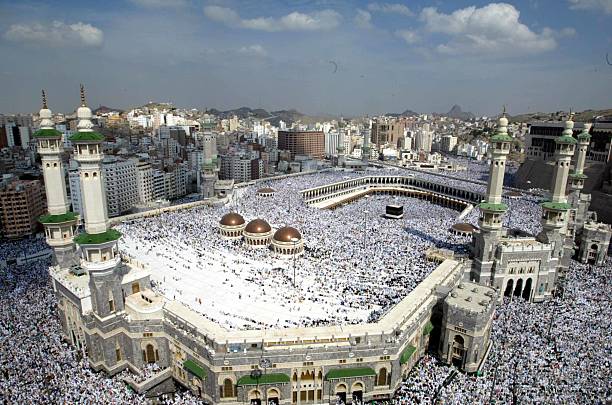With the growth of the Muslim consumer market, it is essential to comprehend the terminology used to explain the various services, necessities, and customs associated with this consumer group. Having a grasp of these concepts, terms, and definitions will assist stakeholders in effectively navigating the segment. Understanding the term "Halal" is crucial as it holds great significance in the Islamic faith and is of utmost importance of grasp. The most significant factor for Muslims worldwide is halal food, which is an essential part of Islamic dietary laws. The term "halal" refers to more than simply what is acceptable; it also includes things that are nice and useful according to Islamic law. Understanding Halal cuisine is crucial for anybody interested in different culinary traditions and global food culture, not only Muslims. Given the wide range of cultures globally, it is crucial to provide a selection of food choices that address various dietary requirements, like incorporating Halal meals in your menu or during your upcoming gathering. Taking these needs into consideration ensures that everyone feels included. Halal is not only related to the food you consume, but also to the way animals are handled while being slaughtered. The animal is sacrificed with minimal suffering and by reciting God's name during the process.
The concept of halal in Islam
The term "Halal" has its roots in Islamic morals and law. It concerns acts, conduct, and goods that are deemed permissible under Islamic law. This applies to different areas of life, such as diet, finance, and behavior. In relation to food, "Halal" refers to all the kinds of food and drinks that are permissible for the Muslims to eat. On the other hand, "haram" denotes something that is prohibited or not allowed.
History of halal by Quran
The three primary sources of Halal food guidelines are where they originate from. The Quran is the primary source of guidance, providing explicit instructions on what is permissible and not allowed. Another form of the text is hadiths, featuring narratives and lessons from the life of Prophet Muhammad. The third source consists of the interpretations of Islamic scholars, who rely on their understanding of the Quran and hadiths to determine what falls under the category of Halal. In countries like the U.K. and U.S., catering to diverse cultural dietary requirements was not always a priority. However, numerous big cities now provide a diverse range of Halal products to cater to the increasing Muslim community. Apps and databases are available to assist in finding halal food and restaurants close by.
The importance of halal food
In Islam, halal food is of great spiritual and cultural importance. Eating halal food is not only about meeting dietary needs, but also a reflection of belief and submission to God’s commands. Halal dietary laws help Muslims select food that adheres to their religious beliefs.
Key principles guiding halal food include:
Slaughter method: the process of sacrificing animals in Islam must follow certain guidelines, including mentioning Allah’s name and using a sharp blade to slit their throat for a merciful and painless death. This method is also known as Zabihah. Forbidden substances: halal food is required to be free from forbidden substances in Islam, like pork, its derivatives, and alcohol or inebriate drinks. Hygiene and sanitation: the abattoir and equipment must meet rigorous cleanliness and sanitation criteria.
What are halal Meals?
Halal food should not include any components that come from forbidden sources. You are required to use utensils and tools that have not touched any haram items. After adhering to these guidelines, you may classify the subsequent food and beverage items as halal. Halal food includes:
- All kind of Seafood
- Meat slaughtered according to Islamic teachings
- Rice and pastas
- Nuts, seeds, and peanut butter
- Eggs
- Cheese
- All vegetables and fruit: dried, raw, or frozen
- Tofu
- Beverages: fruit juices, drinks, cocktails, tea and coffee
- Fat and oil: butter, mayonnaise etc.
- Jam, prickles, spices
- Milk from halal source
- Sauces and dressings
- Soups and much more
What are haram foods?
Forbidden foods especially in non muslims countries consist of pork and animals that hunt using fangs and claws, like lion or falcons. Consuming alcohol is also prohibited in Islam as it is considered haram. Although some Muslims choose to abstain from pork, pork lard, and alcohol to comply with halal regulations, others should also be slaughtered in accordance with Islamic principles. Checking labels for haram ingredients is crucial.
How to identify halal certified products?
Products that are halal certified typically display a logo or symbol on their packaging to show they have been approved as halal by an official body. Make sure to always search for this symbol when buying halal food items. Halal in Islamic teachings refers to food and drink that are permissible for Muslim to consume. Anything that fails to adhere to these rules is classified as haram or "Forbidden." Halal entails more than just refraining from specific foods like pork and Alcohol. It also addresses the treatment and slaughter of animals, ensuring they experience minimal pain and acknowledgment of god's name throughout the procedure. When considering offering halal food, it is beneficial to consult with Muslims regarding their preferences and recommended methods for cooking these dishes.





